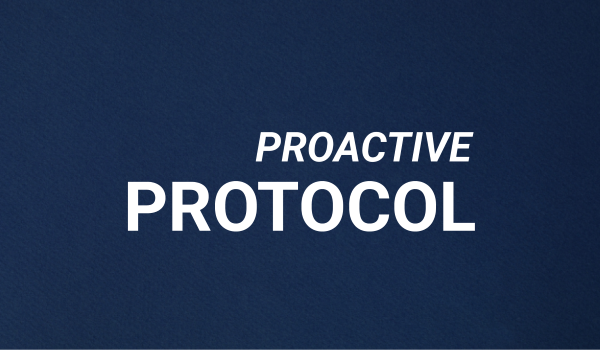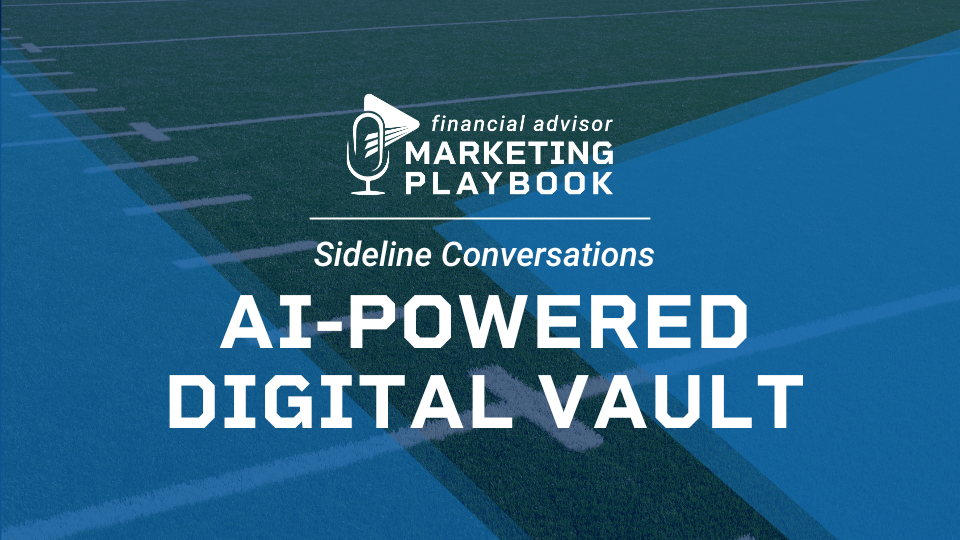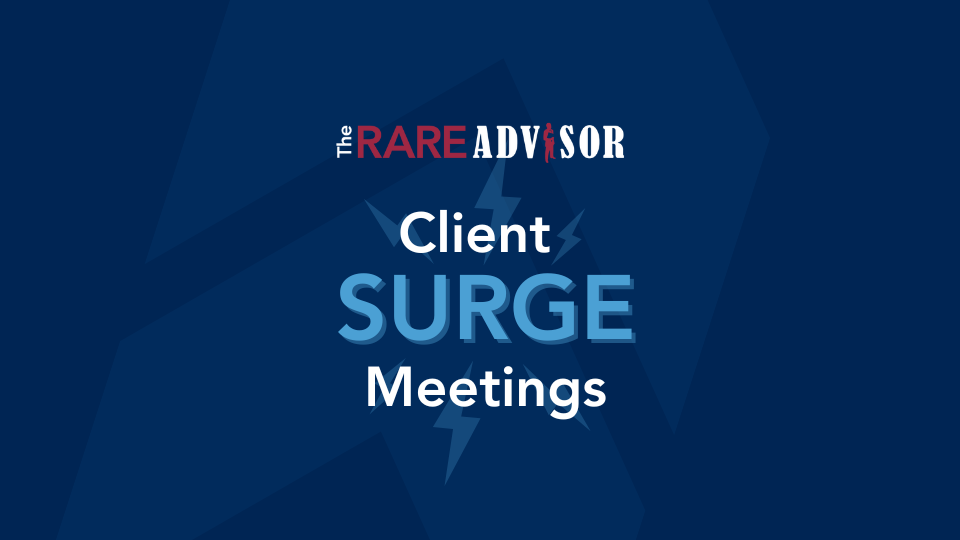5 Essential Keys to Increasing Enterprise Value – Client Relationships

Elevating enterprise value is a fundamental element in securing a seamless and prosperous succession plan for your practice. In this second installment of our six-part series, we'll delve into how Client Relationships impact Elevating Enterprise Value.
Happy clients are not just satisfied clients; they're your firm's biggest advocates. Personalized service, regular check-ins, and a genuine interest in their financial well-being can go a long way. A strong and satisfied client roster not only ensures a steady revenue stream but also enhances the attractiveness of your firm to potential buyers. Demonstrating client loyalty and retention rates can be a compelling factor in valuation.
70% of family money disappears by the end of the second generation.1
90% of family money is gone by the end of the third generation.1
Client Relationship Strategies:
1. Relationships with 2nd & 3rd Generation Clients - Client and Asset Retention
To effectively attract second- and third-generation clients, you must adopt a personalized approach tailored to the unique characteristics and preferences of these demographics. This includes developing targeted marketing strategies that involve hosting events and utilizing communication channels that speak directly to the interests and concerns of younger generations. Also, providing specialized tools, resources, and educational materials that cater to their specific financial goals and challenges is essential for engaging and empowering these clients. Additionally, offering value-added benefits like a Legacy Package, Family Phone Call, and Sounding Board Sessions, enhance client loyalty and foster a sense of belonging within your community. By focusing on these four areas, you can cultivate lasting client relationships that span multiple generations.
2. Client Experience - Creating an Elevated Client Experience
As you pursue an elevated client experience within your practice, you should prioritize attention to detail and personalization. Your office ambiance reflects your brand, creating an inviting atmosphere that resonates with your clients. Each meeting should be carefully themed, adding an element of excitement and cohesion to discussions during Strategy and Tactical (S&T) sessions. Concentrate your efforts on understanding your clients' needs on a deeper level, offering tailored services that address their unique financial goals and aspirations (Client Classification and Stewardship Framework). Acknowledging seminal moments in their lives fosters stronger relationships, laying the foundation for trust and loyalty (Moments of Truth). Create a tangible outcome as you assist your clients in organizing their financial affairs, providing clarity and confidence (Personal Financial Organizer). Cultivate a sense of community among your clientele, fostering connections and shared experiences (Client Events). Prioritize your focus to building strong relationships with your top clients, acknowledging, and celebrating their advocacy for your services (Ideal Client & Advocacy Events). As you continue to evolve, you should remain committed to seeking innovative ways to enhance the client experience and fortify your ideal client relationships.
3. FORM Information - The Proprietary Information You Have About Your Ideal Clients
What insights do you possess about your most valued clients? By employing the F.O.R.M approach—delving into the things that matter most around their Family, Occupation, Recreation, and Money—you can establish a framework to foster deeper and more meaningful connections. This method lays the groundwork for client-centric relationships that extend beyond mere financial transactions and allow you to elevate your awareness and comprehension of the distinct needs, desires, and aspirations of your top clients. By offering personalized attention and outstanding service tailored to their unique requirements, you fortify the trust and confidence shared between you, your team, and your ideal clients. Remember, it's not solely about what you know; it's about demonstrating how much you genuinely care.
80% of all women will die single (80% of men will die married).2
70% of widows fire their advisor after their spouse dies.3
70% of all married women will experience widowhood.4
70% of children fire their parents' advisor after they receive an inheritance.5
4. Nonfinancial Spouse - Creating a Stronger, More Lasting Relationship
Make sure to understand the nature of family dynamics when interacting with your clients. Comprehend both the current and future processes involved in financial decision-making. Neglecting to grasp these dynamics may pose a liability, particularly if you solely prioritize interactions with the financially dominant spouse. By incorporating both spouses in decision-making and respecting individual perspectives, you create and foster a collaborative environment. You can do this by encouraging the creation of joint financial goals with a family-centric approach to enhance cohesion and accountability. You should also ensure that you’re providing regular updates to both parties for transparency and alignment with evolving objectives. And most importantly, as part of your comprehensive planning, make sure you encompass emergency preparedness and support during life transitions, as these are the Moments of Truth that galvanize the relationship. By addressing these facets, you can provide panoramic support tailored to the unique needs of the family unit today and well into the future.
Conclusion
Cultivating strong client relationships is paramount to elevating enterprise value within your practice. By focusing on personalized service, regular check-ins, and demonstrating a genuine interest in clients' financial well-being, you can foster loyalty and satisfaction. Strategies such as engaging with 2nd and 3rd generation clients, creating an elevated client experience, understanding FORM information, and engaging both spouses in financial decision-making are crucial. These approaches not only enhance client retention but also contribute significantly to the attractiveness of your firm to potential buyers. Ultimately, prioritizing client relationships lays a solid foundation for long-term success and prosperity in your practice.
Available Resources:
- Legacy Package
- Family Phone Call
- Sounding Board Sessions
- Moments of Truth
- Personal Financial Organizer
- Stewardship Framework
Contact us to schedule your consultation. In the next installment of the Proactive Protocol, we will focus on the second Key - Systems & Processes: Efficiencies That Create Operational Excellence for Scalable Growth.
1 Investment News, July 13, 2015, “The great wealth transfer is coming, putting advisors at risk.”
2 Kiplinger, May 30, 2021, “Widows Move Forward on Their Own – But Not Alone.”
3 Kiplinger, January 30, 2022, “For Widows: 3 Life Changing Financial Resolutions”
4 Investment News, May 23, 2019, “Dealing with widows requires empathy and patience.”
5 Cerulli Associates, July 19, 2021, “Aging Boomers Bring Intergenerational Planning to the Forefront.”
Important Notice: USA Financial is not a business valuation expert and is not responsible for any misapplication of the information provided herein.
Author Info

Aaron Grady is the Advisor Consulting Director with USA Financial. He brings more than 18 years of Financial Services industry experience...
Related Posts

Why Good Hires Fail: Common Mistakes in Hiring a Junior Advisor
For you, bringing on a junior—or “NextGen” advisor—may be a strategic move, not only for capacity-building but also as a key step in building enterprise value, elevating the client experience, and advancing succession planning. Yet despite careful hiring, promising talent, and good intentions, many of these partnerships flounder. The hire doesn't “stick.” The vision for a seamless transition begins to unravel.

How AI is Transforming Advisor-Client Relationships & Document Security
Discover the concept of "Advisor 3.0," the importance of offering comprehensive services beyond investments, and how tools like Future Vault can strengthen client relationships, facilitate wealth transfer to the next generation, and ultimately enhance the value advisors provide.

Why Top Advisors Use Client Surge Meetings
Tired of the scheduling chaos? Imagine a world with less burnout, more client focus, and actual time for growth. Intrigued? In this episode of The RARE Advisor, we’ll break down how client surge meetings can maximize efficiency and reclaim your calendar. Discover the unexpected benefits and practical tips that could transform your client relationships and your work-life balance.

Why Good Hires Fail: Common Mistakes in Hiring a Junior Advisor
For you, bringing on a junior—or “NextGen” advisor—may be a strategic move, not only for capacity-building but also as a key step in building enterprise value, elevating the client experience, and advancing succession planning. Yet despite careful hiring, promising talent, and good intentions, many of these partnerships flounder. The hire doesn't “stick.” The vision for a seamless transition begins to unravel.

How AI is Transforming Advisor-Client Relationships & Document Security
Discover the concept of "Advisor 3.0," the importance of offering comprehensive services beyond investments, and how tools like Future Vault can strengthen client relationships, facilitate wealth transfer to the next generation, and ultimately enhance the value advisors provide.

Why Top Advisors Use Client Surge Meetings
Tired of the scheduling chaos? Imagine a world with less burnout, more client focus, and actual time for growth. Intrigued? In this episode of The RARE Advisor, we’ll break down how client surge meetings can maximize efficiency and reclaim your calendar. Discover the unexpected benefits and practical tips that could transform your client relationships and your work-life balance.

